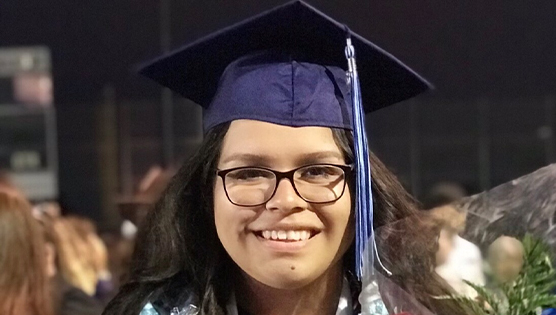Theology and Christian Leadership
Theology and Christian Leadership examines connections between belief and practice in everyday life. They help organizations put values into action and study the role of faith in society.
Combining classes in religion with electives in psychology, sociology, music, multimedia, and more, our program will equip you to design a major or minor appropriate for your interests and career goals.
Deepen your understanding of the world
Our program will equip you to design a major or minor appropriate for your interests and career goals. Through a study of Theology and Christian Leadership, we invite you into the world’s oldest, newest, strangest, and most urgent questions of human meaning, in relation to the staggering breadth of the universe, the world’s beauty and pain, and the most intimate depths of the soul.
Pursue your areas of passion
You’ll begin your program of study by selecting an area of specialization:
- Children, Youth, and Family Ministry
- Not for Profit & Social Sector
- Spirituality and the Arts
In addition, you’ll pursue an internship with an organization that will allow you to develop yourself as a leader. You’ll also participate in a seminar of 4-8 students to integrate experiences in the classroom into your self-understanding as a leader.
At a Glance

Degree Type
Bachelor of Arts
Department
School/College
College of Arts and Sciences
Next Steps
Interested in this major? Here's what you can do next:
With challenging and relevant courses, outstanding faculty, small class sizes, and an emphasis on hands-on learning, the theology and christian leadership program will position you to succeed in your chosen career.
Degree requirements
Find out what it takes to earn a degree in theology and christian leadership and explore the courses.
Emphasis Areas
Customize this major to your interests by taking courses in an area of focus:
Children, Youth and Family Ministry
Prioritizes spiritual capacity, cultural relevance, vocation, and relationships at every developmental age within a framework of asset-based community development.
Not for Profit & Social Sector
Prepares students to be organizational and civic leaders who think theologically, collaboratively, and critically in order to deliver effective advocacy, policy work, and social services.
Spirituality and the Arts
Engages arts of all kinds as spiritual traditions and practices, strengthening and amplifying artistic practice in service of community, contemplation, and transformation.
Highlighted Courses
Get familiar with some of the courses you might take in this major.
RLTH 315: Classical Hebrew Lang/Lit
This course is the first of a two-semester sequence of study leading to a reading knowledge of the Hebrew Bible/Old Testament and other ancient Hebrew texts. Basic Hebrew grammar and vocabulary are studies in conjunction with questions of the literary, religious, and linguistic culture of ancient Israel and early Judaism.
Read descriptionRLTH 320: Bible in the Ancient World
This course surveys biblical writings and examines them in their ancient social, political, and cultural contexts. Students learn comparative methods of literary and historical interpretation with special attention to how reconstructions of the ancient world affect our understanding of these writings.
Read descriptionRLTH 321: The Bible and the Contemporary World
The Bible is an enduring expression of the Jewish and Christian faiths. It is put to myriad uses and read in a fascinating variety of ways in many different contexts. This course explores the Bible in contemporary history, interpretation, social and political life, theology, and the arts, paying special attention to both its materiality and the way its themes are engaged by communities around the world.
Read descriptionRLTH 334: The American Religious Experience
The course traces the historical role(s) of religion in the United States of America from Native American religious traditions, through the dominance of Christianity in its multiple expressions, to the modern-day reality of pluralism. Themes include but are not limited to the relationship between religion and politics; the importance of the U.S. as a land of (religious) opportunity; religion and money; pluralism as a religious idea and/or challenge; and social frameworks such as class, sports, gender and sexuality.
Read descriptionRLTH 391: Children, Youth and Family Ministry
Through course readings, guest speakers, and self-reflection, students will be introduced to the theologies, approaches, and organizational models of ministry with children, youth, and families. Students will investigate the analyses of others through written assignments and exams and will construct their own articulations of the purpose and practice of ministry. By hosting guest speakers, practicing theological skills, and locating resources, students will relate their own identities and leadership styles to the identities and leadership styles of fellow classmates and scholar-practitioners.
Read descriptionRLTH 392: Christian Liturgy and Worship
An introduction to the Christian liturgical tradition, particularly that of Western Christianity. It will include some comparison with non-Christian religious customs, and will give importance to the development of worship in the Protestant traditions. The course's approach is historical, but it may also include some practical training if appropriate to student needs. Christian hymnody and liturgical music will also be introduced, with an emphasis on the distinctive Lutheran contributions in those areas.
Read descriptionRecommended Minors
Want to add even more value to your degree? Consider one of these minors to gain a unique combination of skills and perspectives.
We offer hands-on opportunities that give you the freedom to explore your passion through real-world work and prepare for a fulfilling career.

I remember one time I heard: choose something you love because then you wouldn’t have to work a day in your life. It was at this time that I felt I should be studying something I loved and enjoyed learning during my pastime. If there is someone who wants to learn more about theology (the study of God) or is really seeking to deepen their faith, I definitely recommend studying Theology and Christian Leadership. All of the classes I’ve taken so far have given me a better perspective of where I stand in my faith and have helped me understand the Biblical context.
Christina Romero '23
Read their storyMost of our graduates have combined multiple academic fields into their major or minor, which prepares them for a variety of careers focused on interpersonal engagement. Many alumni continue onto graduate studies related to sexuality, arts, theology or management, while other alumni work as teachers, counselors, camp directors, non-profit leaders, and pastors.
Potential Careers
Philosophy and Religion Teachers, Postsecondary
Teach courses in philosophy, religion, and theology. Includes both teachers primarily engaged in teaching and those who do a combination of teaching and research.
Read descriptionClergy
Conduct religious worship and perform other spiritual functions associated with beliefs and practices of religious faith or denomination. Provide spiritual and moral guidance and assistance to members.
Read descriptionDirectors, Religious Activities and Education
Coordinate or design programs and conduct outreach to promote the religious education or activities of a denominational group. May provide counseling, guidance, and leadership relative to marital, health, financial, and religious problems.
Read descriptionEducational, Guidance, and Career Counselors and Advisors
Advise and assist students and provide educational and vocational guidance services.
Read descriptionEducation and Childcare Administrators, Preschool and Daycare
Plan, direct, or coordinate academic or nonacademic activities of preschools or childcare centers and programs, including before- and after-school care.
Read descriptionFundraising Managers
Plan, direct, or coordinate activities to solicit and maintain funds for special projects or nonprofit organizations.
Read descriptionThis page includes information from O*NET OnLine by the U.S. Department of Labor, Employment and Training Administration (USDOL/ETA). Used under the CC BY 4.0 license. Some occupations listed above may require a related graduate degree.
How We Prepare You for Success
We have 20,000+ employer contacts for jobs and internships, with over 200 listings posted each week.
Our excellent career counselors in the Career Services center will get in touch with you during your very first term on campus. They offer over 50 workshops each year on resume writing, interviewing, salary negotiations, applying to graduate schools, and other critical skills to help you begin your career successfully.
After you graduate from Cal Lutheran, you receive free access to Career Services for life, as a valued member of our alumni family.
of Cal Lutheran graduates find a job or enroll in graduate school within nine months
We work with students and families to make sure everyone who is admitted to Cal Lutheran can afford it.
Tuition & Fees
You and your family might have questions about how you’ll cover the costs of college. We can tell you this — it costs less than you think.
Scholarships & Grants
We offer a range of awards based on academic merit and financial need. This is money that does not need to be repaid.
Net Price Calculator
Take a few minutes to use our calculator and get yourself a personalized estimate of your costs and financial aid.
Let us know and we'll send you information about our academics, campus life, the admission process, and more!
Ready to apply?
We’re now accepting applications for Fall 2026!
Level Up Your College Search
Check out our college success guides to help you navigate the search process.

How to Choose a College Major
Your major will be a significant part of your academic experience. How do you pick the right one?

5 Tips for Applying to College
Learn how to look good when applying to colleges, with personal tips to stand out from Cal Lutheran admission counselors.

How to Afford College
Read this guide to minimize costs as you save for college during high school — learn all about scholarships, financial aid, FAFSA, and more!

5 Key Advantages of a Liberal Arts Education
Are the liberal arts still worth studying in today's world? If you want a future-proof college education — absolutely.

How to Get Recruited for College Athletics
Check out our tips to connect with coaches, navigate campus visits, and move forward with confidence.

Private vs. Public Universities
The differences between each — and how to choose the school with your dream college experience.
